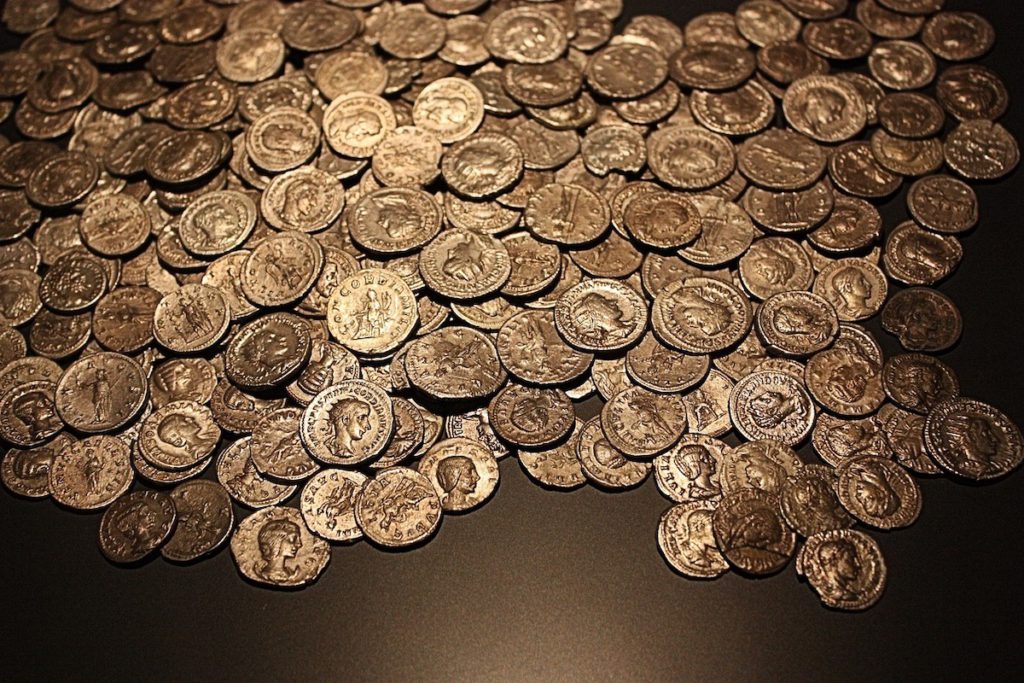A cache of 44 golden coins hidden more than 1,000 years ago inside a wall has been discovered by Israeli archaeologists. Experts think the hoard points to a dramatic time in the region’s history: The Muslim conquest of parts of the Byzantine empire at the time.
The coins were found at the base of a rock wall excavation in Hermon Stream Nature Reserve, outside Banias, in the Golan Heights. Archaeologists found the coins in the ancient town Paneas (later known as Banias). The town was once the site of a cult for the fertility god, Pan, according to IAA, and that is where the town’s Greek name comes from.
Dr Gabriela Bijovsky from the IAA said that the oldest coins in the cache were from the reign of Byzantine Emperor Phocas, who reigned from 602 AD to 610 AD. The new coins came during the Muslim conquest of the region later in that century.

